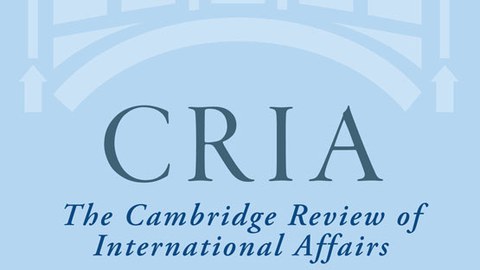Dec 17, 2019
New article by Laura Pantzerhielm and Prof. Dr. Anna Holzscheiter
Laura Pantzerhielm, Research Assistant at the Chair of International Politics at the TU Dresden and Prof. Dr. Anna Holzscheiter have published a new article in the Cambridge Review of International Affairs together with Thurid Bahr (FU Berlin). The article "Governing effectively in a complex world? How metagovernance norms and changing repertoires of knowledge shape international organization discourses on institutional order in global health" deals with the influence of metagovernance norms on discourses on the institutional order of global health measures.
Pantzerhielm, Laura/Holzscheiter, Anna/Bahr, Thurid (2019), Governing effectively in a complex world? How metagovernance norms and changing repertoires of knowledge shape international organization discourses on institutional order in global health, Cambridge Review of International Affairs, 44 (4): 1-26. DOI: 10.1080/09557571.2019.1678112.
Abstract: This article approaches the field of global health governance from the vantage point of shared discourses and norms on the good governance of governance amongst multiple international organizations (IOs). Conceptually, we introduce metagovernance norms as constitutive, reflexive beliefs concerned with institutional order and IO interactions in a given governance field. We argue that such norms are entangled with causal beliefs and problem perceptions that form part of contingent, contested repertoires of knowledge. Moreover, we illustrate how IO ‘expert’ groups form an authoritative subject position from which truth claims about governance are advanced. Empirically, we trace metagovernance norms in discourse(s) amongst eight health IOs since the 1970s. We show how metagovernance norms have been constructed around competing beliefs about governance ‘effectiveness’ and problem perceptions concerned with different forms of ‘complexity’. Our research demonstrates that discourses on institutional order in global health are shaped by metagovernance norms drawing on historically-specific knowledge repertoires.

